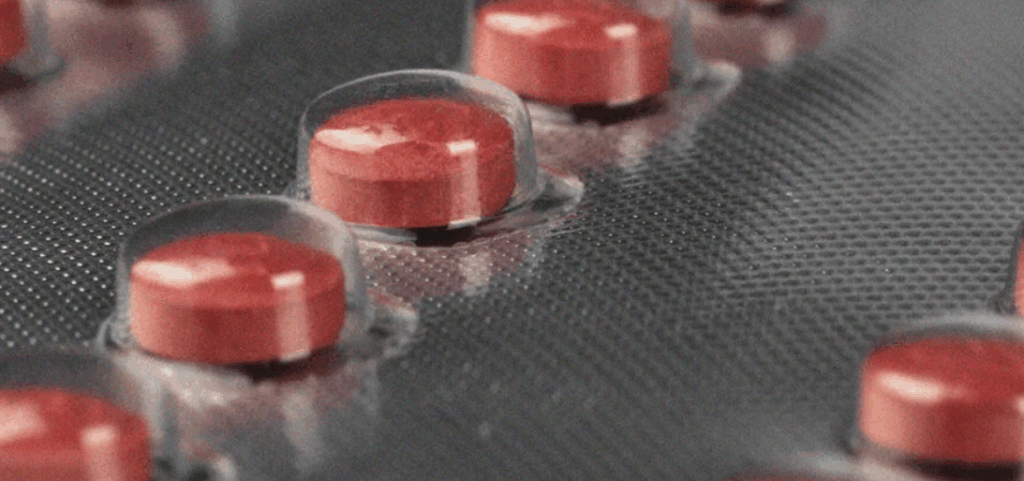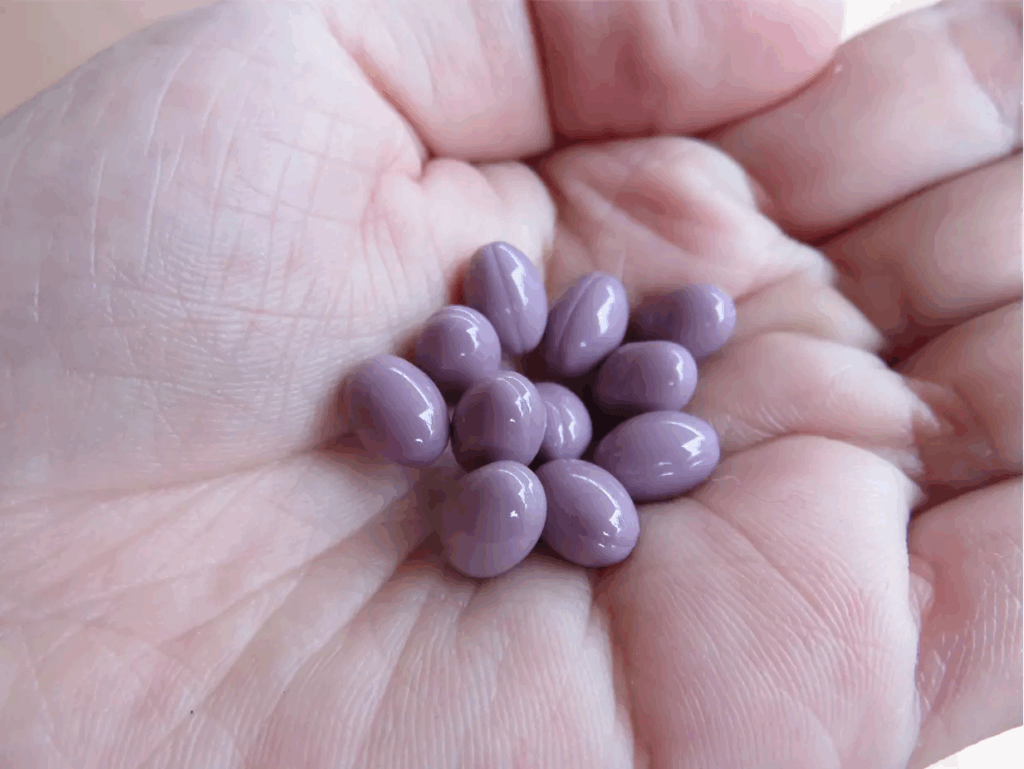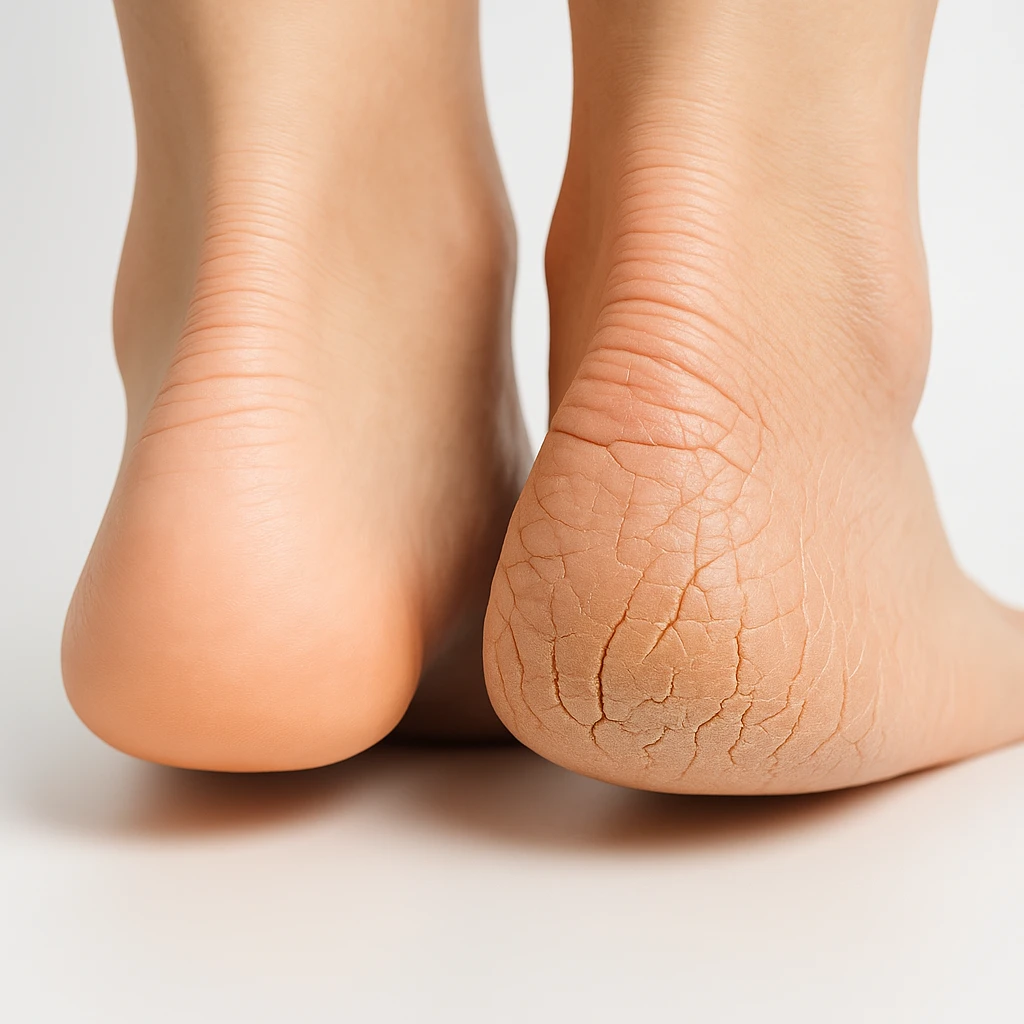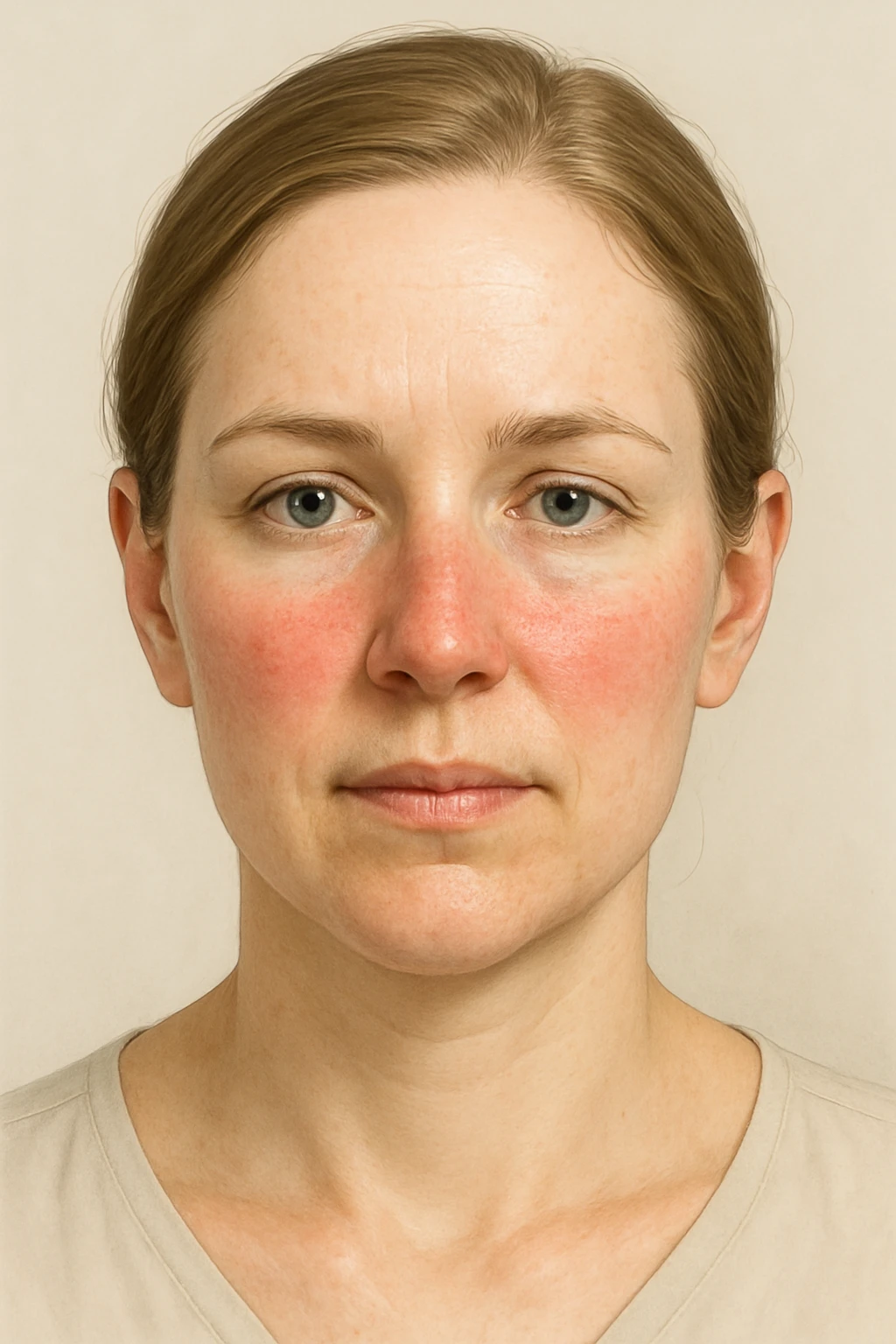Can Accutane Cause Cancer? A Doctor’s Full Review of the Risks and Evidence
- Introduction: Why the Link Between Accutane and Cancer Matters
- Mechanism of Action: How Accutane Works in the Body
- Cancer Concerns in Animal and Laboratory Studies
- Human Clinical Data: What Large-Scale Studies Show
- The Role of Dose and Duration in Risk Assessment
- Impact on Hormonal and Endocrine Systems
- Genetic Susceptibility and Individual Risk
- Comparing Accutane to Other Medications with Cancer Risk
- Accutane and Immune System Modulation
- Regulatory Reviews and Global Consensus
- Public Misconceptions and Media Influence
- Exploring Alternative Treatments with Lower Perceived Risk
- Long-Term Dermatological Follow-Up After Accutane
- Risk Communication in Clinical Practice
- Doctor’s Role in Addressing Cancer Fears
- Using Tools and Resources for Shared Decision-Making
- The Evidence-Based Verdict on Accutane and Cancer
- FAQ

Introduction: Why the Link Between Accutane and Cancer Matters
Accutane, also known by its generic name isotretinoin, is a powerful prescription medication used primarily for treating severe cystic acne. Since its FDA approval in 1982, Accutane has helped millions of patients achieve clear skin when other treatments have failed. However, its potency comes with considerable scrutiny, particularly regarding its long-term side effects. Among the most persistent concerns is whether Accutane can increase a person’s risk of developing cancer.
These concerns arise from isotretinoin’s classification as a retinoid—a vitamin A derivative known to influence cell growth, differentiation, and apoptosis. Because cancer also involves abnormal cellular behavior, researchers have long explored whether manipulating these pathways could inadvertently trigger malignancy. Understanding this relationship requires a thorough analysis of how Accutane interacts with the body at both molecular and systemic levels.
Mechanism of Action: How Accutane Works in the Body
How Retinoids Influence Cellular Growth
Accutane works by altering the behavior of sebaceous (oil) glands in the skin, significantly shrinking their size and reducing the production of sebum. This helps to prevent the bacterial overgrowth and inflammation responsible for acne. However, the mechanism goes deeper than surface oil control. Isotretinoin affects gene expression in skin cells by binding to nuclear receptors called retinoic acid receptors (RARs) and retinoid X receptors (RXRs). These receptors regulate cell turnover, apoptosis, and inflammation.
This regulation is what makes isotretinoin so effective against acne—but also why it’s been both researched and feared in the context of cancer. By pushing cells toward programmed death or slowing uncontrolled proliferation, isotretinoin influences some of the very processes that, when dysregulated, lead to cancer.
Anti-Cancer vs Pro-Cancer Properties
Interestingly, the same pathways that raise concerns have also inspired optimism. Retinoids have been studied as potential anti-cancer agents for certain types of leukemia and skin cancer due to their ability to induce differentiation and inhibit unregulated growth. The paradox lies in the dose, duration, and target tissues. High doses or prolonged exposure in non-target organs may lead to unintended effects, and animal studies have shown both protective and harmful outcomes depending on the model. Salivary gland cancer in dogs – as an example of the influence of drugs and cell mutation on poorly studied tumors.

Cancer Concerns in Animal and Laboratory Studies
Rodent Studies and Isotretinoin
Much of the fear surrounding Accutane and cancer stems from early animal studies. In high doses, isotretinoin has been shown to cause thyroid and liver abnormalities in rodents, including hyperplasia and, in rare cases, neoplasia. However, these findings occurred under artificial conditions using doses far above what would be prescribed to humans.
More nuanced research revealed that isotretinoin could reduce tumor growth in models of skin and lung cancer, particularly by promoting cell differentiation and suppressing angiogenesis (the development of blood vessels that feed tumors). This dual nature complicates how we interpret preclinical data and necessitates caution when extrapolating animal results to human patients.
Molecular Studies of DNA Damage and Repair
In vitro experiments have also examined how isotretinoin affects DNA repair mechanisms and oxidative stress within cells. Some studies suggest that isotretinoin may increase reactive oxygen species (ROS) in cells, potentially damaging DNA over time. However, the relevance of these findings to human physiology is limited, especially given the short duration of treatment courses and the body’s innate repair mechanisms.
Human Clinical Data: What Large-Scale Studies Show
Epidemiological Studies and Cancer Risk
Several population-based studies have explored whether people who used Accutane are more likely to develop cancer later in life. Most of these studies found no statistically significant increase in overall cancer rates among former users. Some even observed a reduced incidence of skin cancers, particularly squamous cell carcinoma, due to the drug’s anti-proliferative effects on keratinocytes.
That said, isolated case reports have documented cancers such as breast, testicular, or thyroid cancer in people who had used isotretinoin—but without a clear causal relationship. These cancers are also relatively common in the general population, and no direct mechanistic link has been established. Transverse colon cancer, in the context of comparison with reliably oncogenic processes and studied risk factors.
Cancer-Specific Investigations and Special Populations
Some studies have focused on specific demographics, such as adolescents, immunocompromised individuals, or patients with a personal or family history of cancer. In these cases, isotretinoin did not appear to act as a carcinogen, although long-term follow-up data is limited. Importantly, no public health agencies, including the FDA and WHO, have issued warnings linking isotretinoin to cancer in humans based on current evidence.
The Role of Dose and Duration in Risk Assessment
Understanding Dosage Thresholds
Accutane is typically prescribed in cumulative doses ranging from 120 to 150 mg per kilogram of body weight over a 4- to 6-month period. This protocol has been shown to balance effectiveness against acne with acceptable safety margins. However, some patients receive multiple courses over their lifetime, which raises the question: does repeated or prolonged exposure change the long-term risk profile?
Available data suggest that cancer risk is not dose-dependent within therapeutic ranges. No clear correlation has been found between higher cumulative doses and increased incidence of cancer. That said, high-dose usage beyond FDA recommendations—especially when used off-label—should be approached with caution until more long-term safety studies are completed.
Cumulative Exposure and Body Storage
Unlike fat-soluble toxins that accumulate over time, isotretinoin is rapidly metabolized and eliminated by the liver. However, its effects on gene expression and immune modulation can persist after treatment. Some researchers speculate that repeated courses could have a compounding effect on DNA regulation or immune surveillance, though this remains theoretical. It is also important to distinguish between clinical dosage and experimental toxicity models, which often use pharmacologic extremes to induce cellular changes.

Impact on Hormonal and Endocrine Systems
Endocrine Disruption and Hormone-Sensitive Cancers
One area of concern in isotretinoin research is its potential impact on endocrine function. Since isotretinoin is a retinoid, it can influence hormonal signaling pathways, including those involving thyroid hormone receptors and sex hormones like estrogen and testosterone. In rare cases, patients have experienced transient changes in thyroid-stimulating hormone (TSH) levels or testosterone fluctuations, although most resolve post-treatment.
This hormonal modulation raises theoretical concerns about cancers that are sensitive to endocrine changes, such as breast, prostate, and thyroid cancers. However, clinical evidence does not currently support an increased risk of hormone-related malignancies in Accutane users. Still, patients with a personal or family history of such cancers may want to consult an oncologist or endocrinologist before starting treatment. bph vs prostate cancer psa levels — as an example of the interaction of hormonal balance and oncogenic risks
Monitoring and Individualized Risk Profiles
To date, no standardized endocrine monitoring protocol exists for Accutane users, aside from liver panels and lipid profiles. However, clinicians may opt for baseline hormone testing in patients with preexisting thyroid or reproductive disorders. Continued monitoring post-treatment is generally not required unless symptoms suggest otherwise.
Genetic Susceptibility and Individual Risk
Role of Genetic Mutations and Family History
Genetics plays a key role in how individuals metabolize and respond to isotretinoin. Variations in enzymes such as CYP26A1, which are involved in retinoic acid metabolism, may influence the body’s response to the drug. These genetic differences can alter the strength and duration of retinoid signaling, potentially impacting long-term outcomes.
Some researchers theorize that individuals with mutations in tumor suppressor genes—such as BRCA1, TP53, or PTEN—could be more sensitive to the epigenetic effects of isotretinoin. However, this idea remains speculative and unsupported by large clinical trials. What is known is that people with a strong family history of cancer should inform their dermatologist, as it may influence treatment decisions and monitoring strategies.
Personalized Medicine and Pharmacogenomics
The future of Accutane safety may lie in pharmacogenomic screening. Understanding how specific genetic profiles respond to retinoids could help clinicians tailor treatment plans, minimizing risk while preserving therapeutic benefit. Although this approach is not yet common in dermatology, ongoing research in precision medicine may eventually bring it into mainstream care.

Comparing Accutane to Other Medications with Cancer Risk
Risk Assessment Across Drug Classes
Accutane is not the only medication that has faced questions about cancer risk. Many commonly prescribed drugs—ranging from immunosuppressants to hormone therapies—carry black box warnings or require long-term surveillance. In this context, isotretinoin’s safety profile is relatively reassuring.
For instance, long-term use of calcineurin inhibitors in transplant patients is definitively linked to increased skin cancer risk, and estrogen-containing hormone replacement therapy has been associated with elevated breast cancer rates. Compared to these, Accutane has not demonstrated such clear associations in humans.
| Drug Class | Example Drug | Known Cancer Concern | Regulatory Warnings |
| Retinoids | Isotretinoin (Accutane) | None proven in humans | Pregnancy & liver |
| Hormone Therapies | Estrogen, Tamoxifen | Breast, uterine cancer | Boxed warnings |
| Immunosuppressants | Cyclosporine | Skin, lymphoid malignancies | Cancer surveillance |
| Biologic Drugs (Anti-TNF) | Infliximab, Adalimumab | Possible lymphoma risk | Post-marketing review |
| Antiepileptics (old generation) | Phenytoin | Liver tumors (rodents) | Animal data only |
Accutane’s relative safety in this context supports its continued use when prescribed responsibly. Nonetheless, all powerful medications deserve vigilance and individualized evaluation.
Accutane and Immune System Modulation
Effects on Immune Surveillance
One of the lesser-discussed effects of Accutane is its influence on immune system activity. Retinoids like isotretinoin modulate both innate and adaptive immune responses. They enhance the skin’s defense mechanisms by reducing inflammation, promoting apoptosis of dysfunctional cells, and altering cytokine profiles. While these changes help clear acne, they also affect immune surveillance—the body’s ability to recognize and destroy potentially cancerous cells.
Theoretical concerns have been raised that altering immune behavior during isotretinoin therapy could either suppress cancer-preventive mechanisms or trigger inappropriate cell death. However, these theories are largely based on cellular models and animal data. In humans, immune modulation by Accutane has not been directly linked to cancer development, though it remains an area of ongoing research.
Autoimmunity and Inflammatory Responses
There are isolated reports of autoimmune-like symptoms developing during or after Accutane use, such as inflammatory bowel disease (IBD), lupus-like syndromes, or thyroiditis. While these events are rare, they raise questions about whether immune dysregulation might contribute to long-term tissue damage or cellular abnormalities. Importantly, current data do not show a higher rate of immune-related cancers in isotretinoin users, but physicians often exercise caution in patients with pre-existing autoimmune disorders.
Regulatory Reviews and Global Consensus
FDA and EMA Positions
Both the U.S. Food and Drug Administration (FDA) and the European Medicines Agency (EMA) have thoroughly reviewed isotretinoin for safety, including its long-term risks. While the drug carries strict warnings—particularly concerning teratogenicity (birth defects)—there is no regulatory indication that it causes cancer in humans. Ongoing surveillance through programs like iPLEDGE in the U.S. focuses primarily on reproductive safety and liver function, rather than oncologic outcomes.
In Europe, isotretinoin is monitored similarly, with adverse event reporting systems in place to track unusual health outcomes. Neither agency has found consistent or conclusive data linking isotretinoin use to cancer, and no boxed warnings have been issued for carcinogenicity.
Scientific Advisory Groups and Post-Marketing Surveillance
Independent reviews from dermatology boards, oncology researchers, and pharmacovigilance committees also affirm that isotretinoin’s benefits outweigh its risks when prescribed correctly. Post-marketing surveillance remains crucial, especially as Accutane continues to be used in adolescents—a group that often goes decades before a possible long-term effect might emerge.
This long latency period is why cancer surveillance data continue to be updated, and why clinicians remain attentive to any new patterns or signals emerging in large patient populations.
Public Misconceptions and Media Influence
Misinformation and Internet Fear
The question “Can Accutane cause cancer?” is often fueled by anecdotal reports and social media narratives rather than data-driven medicine. Fear-based articles or posts that cite single case reports—without statistical context—can create public confusion and anxiety. Patients may abandon effective treatments or delay care out of misplaced fear, even when there is no solid evidence of risk.
It’s important to differentiate between correlation and causation. Just because someone developed cancer years after taking Accutane does not mean the drug was responsible, especially in the absence of a biologically plausible mechanism or epidemiological link.
Importance of Informed Consent and Doctor-Patient Dialogue
Despite a lack of proven cancer risk, physicians should never dismiss patient concerns. A balanced conversation, where risks and benefits are clearly outlined, builds trust and helps patients make confident decisions. Informed consent includes discussing what is known, what remains unknown, and how the patient’s unique medical history might influence risk.
With proper counseling, most patients feel comfortable proceeding with treatment, especially when other acne therapies have failed and the psychological burden of severe acne is high.
Exploring Alternative Treatments with Lower Perceived Risk
Non-Retinoid Options
For patients unwilling to accept any theoretical cancer risk—or who have family histories of malignancy—alternative treatments are available. These include oral antibiotics (like doxycycline), hormonal therapies (like spironolactone), and light-based treatments (such as blue light or photodynamic therapy). While generally less effective than Accutane, these alternatives may be suitable for patients with moderate acne or those who are highly risk-averse.
However, each alternative carries its own side-effect profile. Antibiotic resistance, hormonal fluctuations, and skin sensitivity must be considered in treatment planning. Therefore, the choice of therapy must weigh not only efficacy and safety but also individual values and tolerance for risk.
Natural and Lifestyle-Based Approaches
Some patients turn to diet changes, stress reduction, or supplementation as alternatives. While these approaches may help with mild acne or as adjuncts to prescription therapy, they are rarely sufficient for severe or scarring acne. Dermatologists typically encourage healthy habits but caution against relying solely on unproven methods for serious cases.
That said, maintaining a healthy lifestyle—including a balanced diet, good sleep hygiene, and low exposure to known toxins—can support skin health and potentially reduce oxidative stress, which plays a role in both acne and cancer biology.
Long-Term Dermatological Follow-Up After Accutane
Monitoring for Delayed Effects
Even after successful completion of isotretinoin therapy, dermatological follow-up remains important. Most patients are monitored for recurrence of acne, dryness, and liver function, but a small number express concern about late-emerging side effects, including the possibility of cancer. While long-term effects are rare, ongoing observation provides peace of mind and allows for early detection of any unrelated skin abnormalities that may arise.
In some cases, patients develop actinic keratoses, moles, or cysts years later—conditions not caused by Accutane but worth evaluating due to their potential for transformation. Regular skin checks, particularly for patients with extensive sun exposure or fair skin types, are a good standard regardless of isotretinoin history.
Psychosocial Support and Lifestyle Maintenance
The psychological benefits of Accutane are often underestimated. Many patients experience a profound increase in confidence and social engagement after treatment. However, the fear of “what if” scenarios—like cancer risk—can linger. Mental health follow-up, especially for those who experienced acne-related anxiety or depression before treatment, can be valuable during the post-treatment phase.
Dermatologists can also support patients in adopting long-term lifestyle strategies to maintain skin health without the need for repeat courses, including the use of non-comedogenic skincare products, sunscreen, and healthy dietary habits.
Risk Communication in Clinical Practice
Doctor’s Role in Addressing Cancer Fears
A core responsibility of healthcare providers is to separate real risks from hypothetical ones. When a patient raises concern about cancer and Accutane, clinicians should respond with empathy and data—not dismissal. Explaining that rigorous studies have not found a link between isotretinoin and cancer, and showing patients the actual numbers behind the science, helps reframe fear as manageable risk.
Clinicians should also acknowledge that science evolves. It’s valid to say that current data are reassuring but that surveillance continues. Transparency builds trust and ensures that decisions are based on shared understanding, not blind reassurance.
Using Tools and Resources for Shared Decision-Making
Visual aids, infographics, and comparative risk charts can help explain how isotretinoin compares to other medications or environmental exposures. Shared decision-making models that weigh a patient’s risk factors, severity of acne, and personal preferences allow for better alignment between clinical recommendations and patient comfort.
When patients are fully informed and involved, they are more likely to adhere to treatment, attend follow-ups, and express concerns early—creating a healthier therapeutic relationship.
The Evidence-Based Verdict on Accutane and Cancer
Final Conclusion Based on Current Research
The accumulated evidence from clinical trials, population studies, and regulatory reviews does not support a causal link between Accutane and cancer in humans. While laboratory models have demonstrated both protective and harmful effects depending on context, these do not translate directly to clinical outcomes. In fact, some human studies suggest a protective effect against certain skin cancers due to isotretinoin’s influence on keratinocyte behavior.
The bottom line is that isotretinoin remains one of the most effective treatments for severe acne, with a favorable long-term safety profile when prescribed appropriately. Cancer concerns, while scientifically intriguing, remain speculative rather than evidence-based in real-world human populations.
What Patients Should Take Away
Patients considering Accutane should feel reassured that there is no proven increase in cancer risk associated with the medication when used under medical supervision. Those with unique medical histories or special concerns can consult specialists for added evaluation, but for the vast majority, the benefits far outweigh the hypothetical risks.
FAQ
Can Accutane cause cancer?
There is no clinical evidence that Accutane causes cancer in humans. Laboratory studies show complex effects on cells, but human data do not support a causal link.
Has any health agency warned about cancer from Accutane?
No. Neither the FDA nor EMA has issued cancer-related warnings for Accutane. Warnings focus on teratogenicity and liver health.
Are there types of cancer specifically linked to Accutane?
Some isolated cases of thyroid, breast, or testicular cancers have been reported in Accutane users, but no consistent or causal connection has been found.
What about skin cancer—does Accutane make it worse?
In fact, isotretinoin may reduce the risk of some non-melanoma skin cancers by inhibiting abnormal keratinocyte growth.
Can Accutane suppress the immune system?
It modulates immune responses, particularly inflammation, but does not cause long-term immune suppression linked to cancer risk.
Does Accutane affect hormones?
It can influence hormone signaling but typically returns to baseline after treatment. No hormone-related cancer risk has been demonstrated.
What about genetic predisposition to cancer?
People with strong family histories of cancer should consult a physician, but no studies show that Accutane activates cancer genes.
Are cancer risks higher with multiple courses?
No cumulative cancer risk has been observed with repeat courses, though long-term monitoring continues in clinical studies.
Could Accutane cause cancer decades later?
There is no evidence to suggest a delayed cancer effect. Long-term epidemiological data remain reassuring.
Is there cancer risk for teenagers who use Accutane?
Teens are the most common users, and decades of monitoring have shown no cancer trend in this group.
Do animal studies prove Accutane causes cancer?
Some rodent studies showed abnormal cell growth at high doses, but these conditions do not reflect human therapy protocols.
Are other acne medications safer in this regard?
Alternatives may seem safer, but none have proven to be more effective. Each option carries its own risks and trade-offs.
Should I get cancer screenings after using Accutane?
No special cancer screenings are needed unless your medical history already requires them.
Can Accutane cause colon or prostate cancer?
There is no link between Accutane and these cancers.
What’s the overall medical opinion on Accutane and cancer?
The consensus is that Accutane does not cause cancer when used responsibly, and the benefits outweigh speculative risks.













